Mary Anne Yarde's Blog: The Coffee Pot Book Club , page 122
September 18, 2019
Check out #HistoricalFiction author, Dean Hamilton's, fabulous new release — Thieves’ Castle #NewRelease
Published on September 18, 2019 20:00
September 17, 2019
Have you heard? #HistoricalFiction author, Elizabeth Bell is giving away one Kindle copy of her fabulous #NewRelease — Necessary Sins #Giveaway @elizabellauthor
Necessary SinsBy Elizabeth Bell

In antebellum Charleston, a Catholic priest grapples with doubt, his family’s secret African ancestry, and his love for a slave owner's wife.
Joseph Lazare and his two sisters grow up believing their black hair and olive skin come from a Spanish grandmother—until the summer they learn she was an African slave. While his sisters make very different choices, Joseph struggles to transcend the flesh by becoming a celibate priest.
Then young Father Joseph meets Tessa Conley, a devout Irish immigrant who shares his passions for music and botany. Joseph must conceal his true feelings as Tessa marries another man—a plantation owner who treats her like property. Acting on their love for each other will ruin Joseph and Tessa in this world and damn them in the next.
Or will it?
At once intimate drama and multigenerational epic, Necessary Sins is the first book in the sweeping Lazare Family Saga that transports readers from the West Indies to the Wild West, from Charleston, Paris, and Rome into the depths of the human heart.
Read an excerpt here.
Praise for Necessary Sins, Book One of the Lazare Family Saga
“From the ashes of rebellion to heart-rending forbidden love, Necessary Sins is a work of art. Bell’s voice is a refreshing addition to the genre, and the breadth of her research is impressive. A strong start to a promising series.” — JESSICA CALE, bestselling author of Tyburn
“A taut, compelling family drama with a fresh and intriguing setting. Necessary Sins will be a welcome read for fans of historical fiction.” — OLIVIA HAWKER, internationally bestselling author of The Ragged Edge of Night
“A gripping family saga with complex characters, Necessary Sins is lushly detailed and beautifully written. I look forward to following the fortunes of this antebellum family in future volumes.” — SUSAN HIGGINBOTHAM, author of The First Lady and the Rebel
“Elizabeth Bell is one of the most promising new voices in historical fiction.” — NICOLE EVELINA, USA Todaybestselling author of The Guinevere’s Tale Trilogy
“In this carefully researched historical novel Bell examines the way race, religion and class weave a web that Joseph [Lazare] may never escape. A thoughtful, vividly imagined and engrossing historical novel, highly recommended.” — SARA DONATI, internationally bestselling author of The Gilded Hour
Giveaway
Elizabeth Bell is giving away one Kindle copy of her fabulous book
Necessary Sins.

All you need to do is answer this question:
What is your favorite historical novel set in the American South and why?
Leave your answer in the comments at the bottom of this post.
Giveaway Rules
• Leave your answer in the comments at the bottom of this post.• Giveaway ends at 11:59pm BST on September 27th.You must be 18 or older to enter.• Giveaway is only open US Residents only.•Only one entry per household.• All giveaway entrants agree to be honest and not cheat the systems; any suspect of fraud is decided upon by blog/site owner and the sponsor, and entrants may be disqualified at our discretion.•Winners will be announced in the comments.• Winner has 48 hours to claim prize or new winner is chosen.
Pick you your copy ofNecessary SinsAmazon • Barnes & NobleRead for free with
Elizabeth Bell
Elizabeth Bell has been writing stories since the second grade. At the age of fourteen, she chose a pen name and vowed to become a published author. That same year, she began the Lazare Family Saga. It took her a couple decades to get it right. New generations kept demanding attention, and the story became four epic historical novels.
After earning her MFA in Creative Writing at George Mason University, Elizabeth realized she would have to return her two hundred library books. Instead, she cleverly found a job in the university library. She works there to this day.
Elizabeth was a Finalist for the James Jones First Novel Fellowship and won Second Place in the Maggie Awards for Excellence. The opening pages of Necessary Sins were published in the inaugural issue of the literary journal Embark . Elizabeth is an active member of the Historical Novel Society, and she loves chatting with fellow readers, writers, and history buffs.
Connect with Elizabeth: Website • Facebook • Goodreads • Twitter • Bookbub.
Published on September 17, 2019 20:00
Check out Grace Augustine's fabulous new book — Superior’s Elixir #Fantasy #Mythological #NewRelease @mallidalli
Superior’s ElixirBy Grace Augustine

Lake Superior the largest of the Great Lakes and under its surface lay hundreds of shipwrecks and interesting water creatures. Even today, lost souls and ghost ships wander the lake above and below its surface. Pop-up storms are not uncommon on this body of water and have sunk many vessels. Superior falls prey to the Ides yet again, as does an unsuspecting fisherman who is caught in the waves of the storm. Spiraling downward to the bottom of the lake, the man is near death’s door…until he is whisked away. Superior’s Elixir is an imaginative take on what life is like under the surface of this Grand Dame we call Lake Superior. Filled with fantasy and mysticism, you float along with the characters and learn a bit of history, too.
Excerpt
“The morning was like any other early autumn Minnesota morning: cold, gloomy, yet hopeful. Thankfully, winter hadn’t stretched her icy hands to freeze the lake.
Dave set out to catch his limit of lake trout. His friend, John, was busy and Terry, another friend, couldn’t be bothered, so he decided to go it alone. He readied his boat and set out to fill his empty cooler with the best tasting fish available…in his mind anyway.
Dave packed a smaller cooler of food, grabbed his bait, tackle, poles, and life jacket, and drove to the pier where his boat, Angel of the Lake, was moored.
The ropes soon were untethered from the tie-down, and Dave steered Angel from the harbor into the cold waters of Lake Superior. He was a master at navigating his vessel. It wasn’t the smallest in the harbor, and not the largest, either. It was just the right size for taking a few buddies and spending the day fishing and telling stories.
Dave had lived in the area most of his life and was accustomed to the frequent storms that blew in across the lake, especially this time of year. Minnesotans always chided that you could blink, and the weather would change. One always had to prepare for the worst and hope for the best.
As he moved farther into the lake, he noted several larger vessels ahead of him in the distance. He wondered where they were headed. It was common to see these 20,000 to 60,000 ton ships that hauled taconite to the steel mills. There were others whose cargo bays were filled with grain that would eventually find its way to foreign ports around the world.
Dave knew enough to keep his distance from these big boys. They required lots of room to slow to a stop and could kick up water that would capsize a boat the size of his. In all his years of being on the water, he’d never had an accident, had never capsized, had never run into any bad weather. That all could change today.
The water reflected the gloominess of the day. The farther into the lake Dave drifted, the more the wind whipped murky five-foot waves on what normally was calm, clear water. The eerie sound of air rushing around him and the waves slapping the sides of the boat set him on edge.
Dave pulled on his life jacket. He knew he was in trouble. These pop up squalls on Lake Superior were normal. Living in Duluth most of his life, he’d heard many a tale about them, though he’d personally not experienced one, until this moment.
The winds grew fiercer, and sleet stung his face and hands as it pelted his open skin. The waves violently rocked Angel of the Lake side to side. In an effort to stave off the beating, Dave headed the bow of the boat at an angle into the waves, trying to make his way back to the shore. Water continued slapping over the edge of the bow and soon he was standing in knee-deep water that had to be eliminated.
After slowing his speed and still angling into the waves, Dave took the lid off the empty cooler and began scooping and dumping the water over the side of the boat. He wasn’t sure he would win this battle. The boat took on more and more water, and the next wave sent the Angel flying in the air to crash upside-down in the churning water.
Dave tried to reach the boat, knowing if he climbed on top, he could stay afloat; he’d survive this storm and get to shore. Now he knew why he never fished the lake alone.
The vessel succumbed to the countless waves crashing into it. Dave was lost. With his boat no longer there, nothing floated to the surface. It was just him against the fog and the angry Ides who’d stirred up the storm.
Wave after wave shoved Dave deeper into the frigid lake. It became difficult to keep his head above water. Shouting for help was useless. He was cold and tired of treading water, fighting the waves. A freighter passed within feet of him yet seemed to run right through him.
“This is crazy,” he uttered aloud, spitting water from his mouth. “I know I saw that ship.” He wiped a wet hand over his eyes, hoping to clear his vision. “Oh my God…it’s the Bannockburn!”
Those were the last words he uttered as he sank deeper in the lake, becoming another lost soul on Superior.”
Giveaway
Grace Augustine is giving away 3 ebook copies of her fabulous book
Superior’s Elixir

All you need to do is answer this question:
Do you believe in supernatural beings that help humans?
Giveaway Rules
• Leave your answer in the comments at the bottom of this post.
• Giveaway ends at 11:59pm BST on September 25th.
You must be 18 or older to enter.
• Giveaway is only open Internationally.
•Only one entry per household.
• All giveaway entrants agree to be honest and not cheat the systems; any suspect of fraud is decided upon by blog/site owner and the sponsor, and entrants may be disqualified at our discretion.
•Winners will be announced in the comments.
• Winner has 48 hours to claim prize or new winner is chosen.
Pick up your copy ofSuperior’s ElixirAmazon UK • Amazon US
Grace Augustine
 Editor and award-winning novelist, Grace Augustine, grew up in Montana. The ideas for her books stem from her growing up years as well as the issues she has had to overcome along the way. "Most of my books deal with real life issues, overcoming adversity, maintaining a positive outlook, and Romance---of course!
Editor and award-winning novelist, Grace Augustine, grew up in Montana. The ideas for her books stem from her growing up years as well as the issues she has had to overcome along the way. "Most of my books deal with real life issues, overcoming adversity, maintaining a positive outlook, and Romance---of course! Grace enjoys cool autumn days, old movies, acrylic painting and public speaking as an advocate for Multiple Sclerosis. Diagnosed with MS in June of 2003, she’d had to navigate many new normals.
Connect with Grace: Website • Editing Website • Facebook • Twitter.
Published on September 17, 2019 18:00
September 16, 2019
Join #HistoricalFiction author, Stephen Uzzell, as he talks about the inspiration behind his Amazon best-selling book — I AM JUDEN:UNDERCOVER IN THE SS @StephenUzzell2
I AM JUDEN: UNDERCOVER IN THE SS
By Stephen Uzzell

Hello and thank-you for supporting authors – we really couldn’t do it without you. My name’s Stephen Uzzell and I’m an English high school teacher in the UK with a passion for language and history, with a special interest in the Holocaust.
In the annals of World War Two heroism, the name Haim Michael Klar deserves to be as widely known as Oskar Schindler. Although Haim may not have saved lives on Schindler’s scale (the truth is we cannot know; the facts are few and far between), his individual sacrifice was almost beyond comprehension. During the final years of the war, Haim impersonated an SS officer at Auschwitz and helped ease the suffering of prisoners, who regarded him as their ‘Guardian Angel’. When we consider that Haim was also Jewish, his courage in walking that most precarious of tightropes is astonishing.
I first chanced upon fragments of Haim’s biography several years ago, in a series of Holocaust testimonials to the Association of Descendants of The Shoah, based in Illinois, USA. To my knowledge, it is the sole record of his endeavours.

Haim’s extraordinary double-life was like nothing I had encountered in years of Holocaust research. I had become accustomed to stories such as Oskar Schindler, ‘the good German’, but stories of Jewish resistance are very few and far between. Nechama Tec has written about the Bielski Partisans in Defiance, and Leon Uris documented the Warsaw Ghetto Uprising in Mila 18, but there are precious few others. Nobody has written about a Jewish hero who survived the Holocaust as a double agent.
My original intention was to expand upon the brief details of Haim’s life, with a view to writing his biography. Unfortunately, my attempts at contacting the Illinois organisation proved fruitless. Out of respect, I decided not to pursue the matter any further. But the story had its hooks in me, and would not let go.
I felt I had no choice but to write an account, lightly fictionalised in nature since there were so many gaps in his life story. And so the novel I Am Juden was born. All I knew was that my protagonist, Jozef Siegler, arrived at Auschwitz late in the war as a Nazi. I started there, at the end, and worked back in time, imagining how a resourceful Jew had ended up in an SS uniform. I don’t know for sure if the real Haim ever met UntersturmführerAmon Göth or Gusta Dawidson Draenger, leader of the Krakow Ghetto resistance, but since he was active at the same time and at the same place, it would seem a reasonable assumption.
 Amon Göth.
Amon Göth.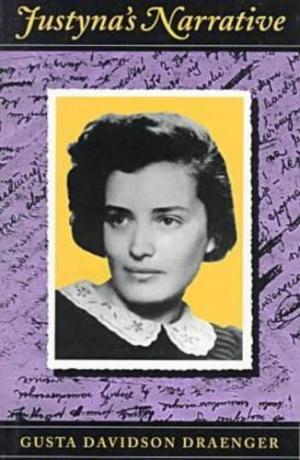 Gusta Dawidson Draenger.
Gusta Dawidson Draenger.Published in January 2019, I Am Juden has been an Amazon Bestseller for six months and is available as an Ebook and paperback:
Pick up your copy of
I AM JUDEN: UNDERCOVER IN THE
SS
Amazon
After completing I Am Juden, I realised the story was still not complete. Like Haim Michael Klar, Jozef Siegler had one daughter (who tragically died young), and they emigrated to New York. It is their lives I explore further in the recently published Ballad of Liberty Siegler, set during the Adolf Eichmann trial of 1961.

I am currently working on a third historical novel, set during the Captain Swing riots of 1830 England, the last peasant uprising.
Scroll down to read an excerpt of I AM JUDEN: UNDERCOVER IN THE SS
Excerpt
An insecticide manufactured by I.G. Farben and known commercially as Zyklon B was first used to kill 600 Soviet prisoners of war in a makeshift gas chamber in the Auschwitz cellars on September 3rd, 1941. In Poland that summer, five killing centres stood equipped for the most efficient mass murder the world had ever known: Chelmno, Belzec, Sobibor, Treblinka and Auschwitz-Birkenau. Ten months after the first gassing, Reichsführer Himmler spent the weekend in the Silesian countryside, inspecting the camp’s ongoing expansion and construction of four large chambers and crematoria. The piece de resistance was Himmler’s observation of a successful Sonderaktion from beginning to end. Two convoys of Jews arrived from Holland, were detrained, then gassed in bunker 2, and their bodies removed to be buried in mass graves. The whole process ran without hitch. The very next day, Reichsführer Himmler ordered all Ghettos in the Generalgouvernement to be eliminated by December 31st1942. Jozefinska received the memo on Sunday July 19th.
The Eagle Pharmacy had not yet opened its doors when I almost broke them down half an hour later. Helena Krywaniuk let me in, her fingers shaking at the latch. Perhaps she thought I’d come to arrest her. Pankiewicz stood ramrod straight at his counter, adjusting weights on his scales and refusing to look up until he’d found the balance.
‘I need to see you,’ I said. ‘In private.’
‘What’s the matter?’ he said when we were inside his office. ‘You look awful.’
I told him everything I’d learned about the gas chambers, and steeled myself for his inevitable disbelief.
He cast those deep eyes to the floor and fiddled with his bow-tie.
‘We know.’
‘What do you mean, you know?’
It turns out somebody had escaped after all. A dentist called Jiri Bachner had been amongst the first deportees from Cracow last month. When his transport reached Belzec, Bachner broke loose from the others and hid in a latrine. He spent two days submerged up to his chin in the excrement pit and broke out of the camp on the third night, stealing past the stack of corpses outside the bunker. A fortnight later, trudging along the train tracks, he made his way back to the Ghetto.
‘He came back?’ I said. ‘Why?’
‘The same reason you’re here.’
‘And that was, what, a whole month ago?’
‘The Judenrat didn’t want to start a panic, based on one person’s story. Bachner’s hair had turned completely white and at times he was incoherent. He looked like a madman.’‘So they ignored him?’
‘Initially, yes. But Akiva sent a kashariyot to follow the trail of the deportees. They made contact on the Aryan side with a Polish railroad worker familiar with the transport routes. They went together and confirmed what Bachner saw.’
‘So now what?’
‘The decision’s already been made to close the farm at Kopaliny. Gusta and Shimson Dawidson will be leading a return to the Ghetto, to direct operations from here. We have a friendly guard who will open up the gate for them, a good Catholic man, a police sergeant from Vienna. Like you, he left his regiment in the Ukraine to get posted here, to help. He brings food and takes children out, for no bribe. We need you to meet the Dawidsons in Kazimierz and escort them to Zgody Square. If anybody stops you, they are prisoners, under your custody.’
For more information and regular tweets about the Holocaust, please join the thousands of Twitter users who follow me @StephenUzzell2
Published on September 16, 2019 20:00
September 15, 2019
Join Historical Fiction author, DK Marley, as she takes a look at the Mystique of Scottish Herbology in the 11th-Century #History #Herbology @theRealDKMarley
The Mystique of Scottish Herbology in the 11th-CenturyBy DK Marley I must admit when I first thought about the research behind this topic for my novel “The Fire of Winter, I was not very keen on the subject. After all, my husband has always told me I do not have a green thumb, so for good reason I dreaded this topic and I thought this was just another avenue of looking up plants for the various atmospheric scenery I needed for the novel.
I did not expect to become so utterly fascinated with each little flower and herb, and what each might do to your body and mind, but I did!
I did hear (and after reading her books) that Diana Gabaldon did quite a bit of research as well when writing Outlander since Claire is a nurse and with her modern knowledge of plant-life and lore, she was able to use this in her trip to the past. I read her books as part of my research just to see how she wove that knowledge into the story-line. After that, I was hooked with the research and had to remind myself I had a story to write myself.

There is a certain mystique to herbology of 11th-century Scotland. The secrets of dwale. The dangerous flying ointment made from mandrake and belladonna. The various flowers and berries used to flavour mead and wine. Here is just a little of what I learned:


I wanted very much to portray the witches in Shakespeare’s play as real women with their own secrets and past seeking to get by in a very trying time for women. The transition from pagan beliefs of old into the Celtic Church was not an easy one, some of the primitive traditions lingered, such as the use of herbs to cure various sicknesses, as well as spells, love potions, and more. Once I learned more about the uses of various plants and herbs, it was an easy choice to make the witches into women skilled in the herb lore, rather than the supernatural crones of the play. Everything about this fit well into their characterization, however, what I did not expect is what this effect would have on my main character.
For me, this was a case of not knowing that my character was about to traverse this path as I began to write. I mean, Gruah (Lady Macbeth) has a bit of knowledge of herbs from her mother, a Pictish Princess, as well as the knowledge she acquired during her stay with the weird sisters and their mother early on in the story, but when she started delving into her daily doses of dwale and belladonna, well, I was taken by surprise. I even sat for a few days and contemplated if I wanted her to go that route. After my musing, I realized that she must go down that terrible path to show how much she desired to escape from her past, even at the cost of drug abuse.

People do this all time, unfortunately, and I feel this is part of what makes Gruah so relatable to modern-day. She is ambitious, passionate, with terrible secrets in her past that she wants to escape from but falls prey to her own need for power. This is no excuse at all for her actions, the same as a person today who travels that path must suffer the consequences of their choice. Gruah paid the price in the end, again in a way I did not see coming until the words flowed out from my tapping fingers on my keyboard.
To find out more about Medieval Herbology, click HERE!
The Fire of WinterBy DK Marley
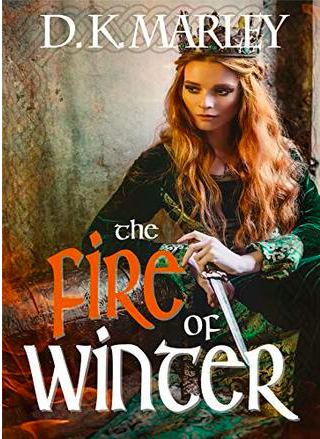
“...a woman's story at a winter's fire...”(Macbeth, Act III, Scene IV)
She is known as Lady Macbeth. What leads her down the path of murder? What secrets fire her destiny?
Gruah, the granddaughter of King Cìnéad III of the Royal Clan Alpin, marries two men in less than six months, one she loves and one she hates; one in secret, the other arranged by the High King of Scotland. At the age of eighteen, she lays her palm upon the ancient stone of Scone and sees her destiny as Queen of Scotland, and she vows to do whatever necessary to see her true love, Macbeth macFindlaech, beside her on the throne. Amid the fiery times and heated onslaughts from Denmark and England, as the rule of Scotland hangs in the balance, Gruah seeks to win the throne and bring revenge upon the monsters of her childhood, no matter the cost or amount of blood tainting her own hands; yet, an unexpected meeting with the King called the Confessor causes her to question her bloody path and doubt her once blazing pagan faith. Will she find redemption or has the blood of her past fire-branded her soul?
“Brilliantly conceived and beautifully written, The Fire of Winter is a tale not to be missed by lovers of Shakespeare, lovers of history, or lovers of the written word.” Riana Everly, Author of Teaching Eliza and Through a Different Lens
Pick up your copy ofThe Fire of WinterAmazon UK • Amazon US
DK Marley
 D. K. Marley is a historical fiction writer specializing in Shakespearean themes. Her grandmother, an English Literature teacher, gave her a volume of Shakespeare’s plays when she was eleven, inspiring DK to delve further into the rich Elizabethan language. Eleven years ago she began the research leading to the publication of her first novel “Blood and Ink,” an epic tale of lost dreams, spurned love, jealousy and deception in Tudor England as the two men, William Shakespeare and Kit Marlowe, fight for one name and the famous works now known as the Shakespeare Folio. She is an avid Shakespearean / Marlowan, a member of the Marlowe Society, the Shakespeare Fellowship and a signer of the Declaration of Intent for the Shakespeare Authorship Debate. She has traveled to England three times for intensive research and debate workshops and is a graduate of the intense training workshop “The Writer’s Retreat Workshop” founded by Gary Provost and hosted by Jason Sitzes. She lives in Georgia with her husband and a Scottish Terriers named Maggie and Buster.For more information, please visit D.K. Marley’s website. You can also find her on Facebook, Twitter, Pinterest, and Goodreads.
D. K. Marley is a historical fiction writer specializing in Shakespearean themes. Her grandmother, an English Literature teacher, gave her a volume of Shakespeare’s plays when she was eleven, inspiring DK to delve further into the rich Elizabethan language. Eleven years ago she began the research leading to the publication of her first novel “Blood and Ink,” an epic tale of lost dreams, spurned love, jealousy and deception in Tudor England as the two men, William Shakespeare and Kit Marlowe, fight for one name and the famous works now known as the Shakespeare Folio. She is an avid Shakespearean / Marlowan, a member of the Marlowe Society, the Shakespeare Fellowship and a signer of the Declaration of Intent for the Shakespeare Authorship Debate. She has traveled to England three times for intensive research and debate workshops and is a graduate of the intense training workshop “The Writer’s Retreat Workshop” founded by Gary Provost and hosted by Jason Sitzes. She lives in Georgia with her husband and a Scottish Terriers named Maggie and Buster.For more information, please visit D.K. Marley’s website. You can also find her on Facebook, Twitter, Pinterest, and Goodreads.
Published on September 15, 2019 21:00
Now is your chance to vote for your favourite book cover for SEPTEMBER over on The Coffee Pot Book Club! #BookCovers #CoffeePotBookClub #Competition
The Coffee Pot Book Club
Promoting Historical Fiction since 2015
Book Cover of the Month

Readers' Choice! September 2019
Now is your chance to vote for your favourite book cover for June. All you need to do is pop the number of the book cover you like along with the book title in the comment section at the bottom of the page.
The winner will be announced on the 28th September.
★ 1 ★Sons of the WolfBy Paula Lofting
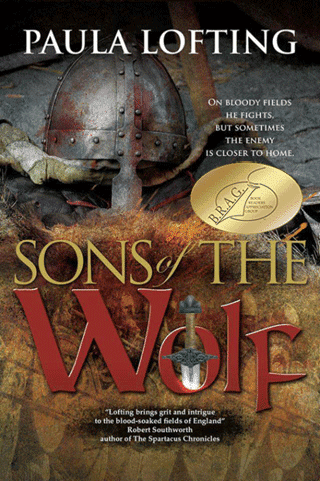
★ 2 ★The Beltane Choice (Celtic Fervour Series Book 1)By Nancy Jardine
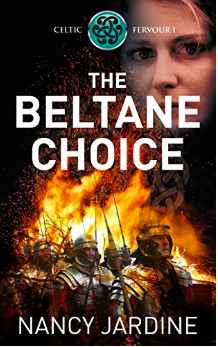
★ 3 ★The West Country TrilogyBy Johanna Craven

★ 4 ★The Monk Who Cast A SpellBy Sharon Bradshaw

★ 5 ★CaledonBy Virginia Crow

★ 6 ★AbandonedBy Tim Walker
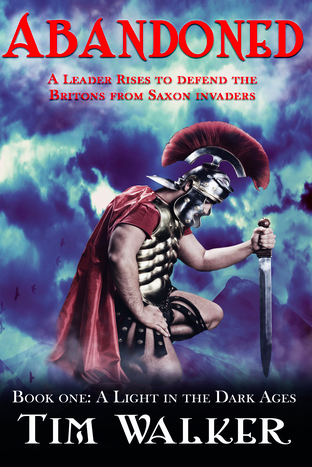
★ 7 ★Hooks & Eyes: Part 1 of The Ambition & Destiny SeriesBy Val McBeath
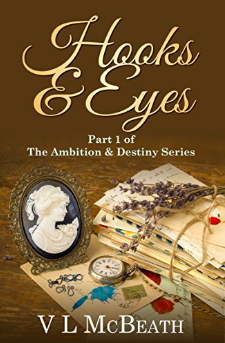
★ 8 ★Oric and the Alchemist's Key (The Oric Trilogy Book 1)By Lesley Wilson
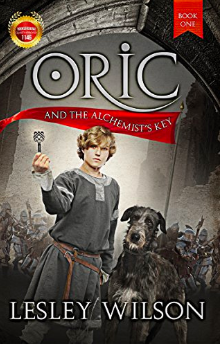
★ 9 ★The Mrs MacKinnonsBy Jayne Davis
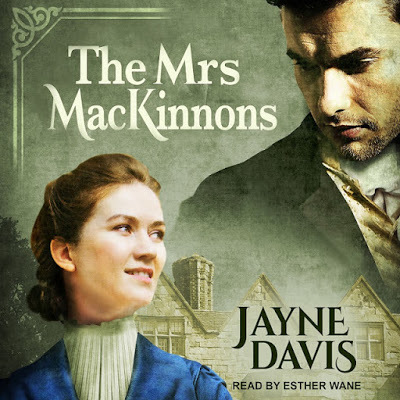
★ 10 ★ The Gilded LilyBy Deborah Swift

★ 11 ★The Secret Life of Mrs. LondonBy Rebecca Rosenberg

★ 12 ★Beguiling the BaronBy Elizabeth Keysian
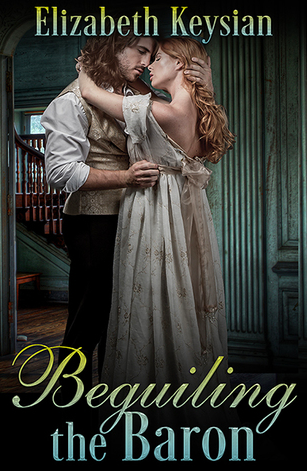
★ 13 ★Empire's Daughter (Empire's Legacy Book 1)By Marian L Thorpe
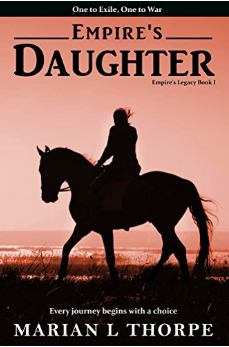
★ 14 ★A Place in the World(The Miramonde Series, Book 3)By Amy Maroney

★ 15 ★The Fire of WinterD.K. Marley

★ 16 ★I am Jude:Undercover in the SSBy Stephen Uzell

★ 17 ★Necessary SinsBy Elizabeth Bell

★ 18 ★Thieves' CastleBy Dean Hamilton

★ 19 ★The Art of MurderBy John Holt

★ 20 ★How to Catch a Wicked VicountBy Amy Rose Bennett

★ 21 ★Beautiful Invention by Margaret Porter

★ 22 ★A Phoenix RisingThe House of the Red Duke Book 1By Vivienne Brereton

★ 23 ★The Laird's Willful LassBy Anna Campbell

Good Luck!
Published on September 15, 2019 18:00
September 13, 2019
#BookReview — A Place in the World (The Miramonde Series, Book 3) by Amy Maroney #Renaissance #HistoricalFiction @wilaroney

A Place in the World(The Miramonde Series, Book 3)By Amy Maroney

The secrets of the past are treacherous…and irresistible.A Renaissance-era female artist and an American scholar. Linked by a centuries-old mystery…2016: Scholar Zari seizes the chance to return to Europe as a consultant for an art dealer. Overwhelmed by her job, she has little time to hunt for clues about Mira. But when art experts embrace a theory that Mira’s paintings are the work of a famous man, Zari must act. Racing against time, she travels to a windswept corner of Spain. What she discovers there solves the puzzle of Mira forever—and unlocks the secrets of Zari’s own past.1505: Pregnant and reunited with the love of her life, artist Mira survives a harrowing journey to the city of her dreams. But Bayonne is nothing like she imagined. Navigating a dangerous world ruled by merchants and bishops, she struggles to reignite her painting career. When an old enemy rises from the shadows, Mira’s life is thrown into chaos all over again—and she is faced with a shattering decision.

"Have you learned anything new on the topic of Mira de Oto since I saw you in the spring?"
The year is 2016 and the closer art historian, Zari Durrell, gets to finding Renaissance artist, Mira de Oto, the more elusive she becomes. Unfortunately, in the eyes of the art experts, Mira is nothing more than a good story — there is no credibility to it, especially since Dottie Butterford-Swinton has disproved Zari's findings. But Zari is convinced that Mira was a skilled artist and she is determined to pull her from obscurity.
A new life, that is what Mira and her husband, Arnaud de Luz, had hoped when they reached Bayonne in the year 1505. But the long journey to Bayonne had taken its toll. Rose is dead and with a heart that is broken, Mira wonders if she will ever feel normal again for grief is eating up her soul, and the welfare for the baby she carries in her womb lies heavy on her mind. What if she lost this baby too? How would she survive?
As Mira and her family struggle to make a new life, an old enemy is plotting their demise. Will Mira and her family survive? Will Mira ever paint again? And back in 2016, will Zari ever discover the truth about Mira de Ot?
Elegant, powerful and shamelessly compelling are words I would use to describe A Place in the World (The Miramonde Series, Book 3) by Amy Maroney.
I have been waiting with eager anticipation for the final book in The Miramonde Series, and I am pleased to say it was more than I imagined it could be, and then some. Not only is the world, both modern and Renaissance, luxuriantly detailed, but the characters are rich and vibrant and wholly irresistible.
I embraced this series from Book 1, and I have enjoyed the journey this trilogy has taken me on. It seems strangely like a privilege as I watched Mira grow up within the pages of these books and become a woman in her own right. Maroney has masterfully portrayed how difficult it was for female artists in this era, not to only to be recognised alongside their male counterparts, but to be taken seriously at all. I could not help but admire Mira's tenacious refusal not to become disheartened and to keep doing what she cherished. This made Mira not only a woman to respect but one who was very inspirational — it is such a shame she is a fictional character, I so wanted her to be real!
As with the other books, this story is told from a contemporary point of view as well as a Renaissance one. To pull this mixed timeline off takes considerable skill. Many times a reader will find themselves drawn to one era of the book and flick through the pages of the other, but I found both Zari's hunt for Mira, and Mira's story equally fascinating. And because both timeframes run seamlessly along together, my attention never wavered. A Place in the World (The Miramonde Series, Book 3) is brilliantly executed and masterfully written.
This is a novel that is next to impossible to put down, and the short chapters make this long book seem so much shorter than what it actually is.
The richness of the history has to be commended. There is a depth to Maroney's narrative, a vibrant perspective that brought the Renaissance era back to life in all its sweeping glory. The attention to detail, and Maroney's knowledge of the Renaissance artists, is staggering. Maroney writes with passion and a familiarity for the era — she knows her history and her art very well. The same can be said for the contemporary parts of this novel.
Maroney has an intuitive understanding of how the art industry, with its system of coinciding subdivisions, operates. I was absolutely fascinated as Maroney delved deeper into the world of art. Saying that, however, you do not have to have an understanding or even like Renaissance art to fall in love with this series. The characters and the narrative are enough. The art is just a bonus!
If you are looking for your next great series, then please, look no further than The Miramonde Series. You won't be disappointed — I almost envy you, for I know what a fantastic journey you are about to go on. I love this series, and I think you will too.
I Highly Recommend.
Review by Mary Anne Yarde.The Coffee Pot Book Club.
Pre-order your copy ofA Place in the WorldAmazon UK • Amazon US
Amy Maroney
 Amy Maroney lives in the Pacific Northwest with her family. She studied English literature at Boston University and public policy at Portland State University, and spent many years as a writer and editor of nonfiction before turning her hand to historical fiction. She’s currently obsessed with pursuing forgotten women artists through the shadows of history. When she’s not diving down research rabbit holes, she enjoys hiking, drawing, dancing, traveling, and reading. She’s the author of The Girl from Oto and Mira’s Way, the first two books in the Miramonde Series. The third book in the series will be published later in 2019. To receive a free prequel novella to the series, join Amy’s readers’ group at www.amymaroney.com. You can find her on Twitter @wilaroney, on Instagram @amymaroneywrites, and on Facebook.
Amy Maroney lives in the Pacific Northwest with her family. She studied English literature at Boston University and public policy at Portland State University, and spent many years as a writer and editor of nonfiction before turning her hand to historical fiction. She’s currently obsessed with pursuing forgotten women artists through the shadows of history. When she’s not diving down research rabbit holes, she enjoys hiking, drawing, dancing, traveling, and reading. She’s the author of The Girl from Oto and Mira’s Way, the first two books in the Miramonde Series. The third book in the series will be published later in 2019. To receive a free prequel novella to the series, join Amy’s readers’ group at www.amymaroney.com. You can find her on Twitter @wilaroney, on Instagram @amymaroneywrites, and on Facebook.
Published on September 13, 2019 21:00
#BookReview — Empire’s Legacy by Marian L Thorpe #HistoricalFantasy @marianlthorpe
 Empire’s LegacyBy Marian L Thorpe
Empire’s LegacyBy Marian L Thorpe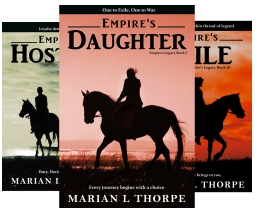
Book 1: Empire’s DaughterBook 2: Empire’s HostageBook 3: Empire’s Exile
For twenty generations, the men and women of The Empire have lived separately, the women farming and fishing, the men fighting wars. But in the spring of Lena’s seventeenth year, an officer rides into her village with an unprecedented request. The Empire is threatened by invasion, and to defend it successfully, women will need to fight.
When the village votes in favour, Lena and her partner Maya are torn apart. Maya chooses exile rather than battle, Lena chooses to fight. As Lena learns the skills of warfare and leadership, she discovers that choices have consequences that cannot be foreseen, and that her role in her country’s future is greater than she could have dreamed.

“Could history ever be accurate? Who decides what stories are told?”
History had never really interested Lena of Tirvan, that was until Casyn had ridden into their village. It was unheard of, you see, for a man to live in the village, let alone to work in the village. Many years ago it had been decided to partition the people of The Empire. The women farmed and provided the food, while the men fought and defended the kingdom’s large border. The men and the women of this great nation only came together twice a year at The Festival for reproductive purposes only. So Casyn’s arrival upset the order of things.
However, Casyn’s true intention was not to live in the village. He had been sent by the Emperor himself with a grave and dire warning. War was imminent, and all had to be ready to fight for their Emperor, their country and their freedom.
If they were to vanquish this foe, then they had to fight — together. At first, Lena had felt nothing but excitement at the prospect, for she longed for adventure. But changes to the law were not so easy for others, and Lena finds herself in an impossible situation. Does she stay and learn how to fight and defend her home? Or does she refuse? Her partner, Maya, has already made her choice. Now all Lena has to do is make hers.
However, all choices have consequences. For some, it meant death, for others banishment, but for Lena, she is to learn the most valuable of lessons — nothing is assured in times of war, and everyone is seemingly expendable.
From the tranquil beauty of the fishing village of Tirvan, to the harshness of life as a Guard for the Emperor. The Empire’s Legacy by Marian L. Thorpe is the mesmerising and unforgettable story of one young woman’s fight to save her home, her family, her relationship, and her kingdom.
With energetic prose, lavish attention to detail and a fantasy world that feels both familiar and foreign, The Empire’s Legacy series is as impressive as it is triumphant. Not only did it captivate me from the very first sentences, but it also continued to enchant until the very last full stop. Thorpe has depicted a hardworking community where everyone knows their place, and no one questions it — the law is the law. With the arrival of Casyn, Lena is forced to become someone she never dreamed she could be, and although Lena always longed for adventure, she finds herself on a path that will take her far away from everyone she ever knew and ever loved. Lena’s story is powerful in its simplicity. She has to fight, of that, there is no choice, but she also has to find out who, underneath it all, she really is. Lena embarks on an unpredictable and unprecedented journey from which as a reader it is near on impossible to turn away from.
The harshness of the battlefield and the tender moments of a love found in the unlikeliest of situations set this trilogy somewhat apart. As we follow our intrepid heroine through a war-torn country, we are also reminded that Lena is a young woman who simply wants to love and be loved. In between the relentless training and the battles, there are moments of tenderness that are breathtaking as well as heartbreaking. But all of the passion and the tears and the deplorable pain can be forgotten in the arms of a man who had guarded his heart so diligently, but who cared so deeply that all other loves paled in comparison. I have to be really careful not to give the plot away, as many characters in this book are part of the incredible journey of discovery that Lena finds herself on, but there is one that stands head and shoulders above the rest. Thorpe’s depiction of Cillian is outstanding. Initially, I wasn’t too sure about him, he is reticent and comes across as very angry towards Lena because of who she is and where she comes from, but as we move from Book 2 to Book 3, Cillian really came into his own. I absolutely adored him. Through him and Lena, Thorpe shows a tremendous understanding of human frailty, and indeed, the fragility of the heart — love can conquer all, but it also has the power to destroy, and we see this in both Lena and Cillian. Their relationship is complicated and at times uncertain, but it could never be accused of being dull. It is pure and honest and true — utterly irresistible.
Not only is this series a gripping account of love and war, but it also illustrates the political struggle that the Emperor of the West faces as he desperately tries to hold his country together in a time of constitutional crisis. Although Emperor Callan is very much a secondary character in this series, his decisions drive the story forward. I thought Callan came across as a just ruler who only wants what is best for his people, but surprisingly not at the greater expense of the individual, which makes him somewhat unique. And although he is tied to the laws of the land and to the treaties he has signed, he is astute enough to know when to push the political boundaries to get what he wants. Thorpe has certainly presented her readers with a leader that commands respect and I enjoyed reading about him.
Thorpe states that she has a life-long interest in Roman and post-Roman European history, and this certainly shines through in this fantasy world that she has created. Thorpe has depicted a land which is rich on the one hand, but desolate on another. The land is as vast and as beautiful as Tolkien’s middle earth but without the sentient beings that Tolkien’s books are so famous for. I thought it was a superb setting for this war and these characters. The land evoked a time long ago and a world forgotten. The Empire’s Legacy is an example of historical fantasy at its very best.
The concept of having a kingdom where men and woman are divided is one that I have not come across before. Thorpe has asked and answered the question — how would the dynamics of such a community work? It is an exciting notion and one that came across very realistic in the telling. When the dynamics are changed, and men and women find themselves together for an extended period, it was interesting to see how the characters coped. In Book 2, Lena finds herself in another kingdom where such restrictions are not in place and have never been in place. Here it is normal for a woman to fall in love with a man, and have a family together which made Lena’s bisexuality a little, maybe not taboo but something very close. Lena struggles with the foreignness of this, but her compassion and her understanding of heartbreak and love give her a sense of ancient wisdom — love is, after all, love.
I cannot praise this series enough. It is absolutely dazzling, and I am a now a huge fan of Marian L. Thorpe. The Empire’s Legacy would undoubtedly appeal to readers who loved Veronica Roth’s fabulous Divergent trilogy.
The Empire’s Legacy is without a shadow of a doubt, a box-set that commands your attention and deserves your respect.
I Highly Recommend.
Review by Mary Anne Yarde.The Coffee Pot Book Club.
Pick up your copy ofEmpire’s LegacyAmazon UK • Amazon US
Marian L Thorpe
 Not content with two careers as a research scientist and an educator, Marian L Thorpe decided to go back to what she’d always wanted to do and be a writer. Author of the alternative world medieval trilogy Empire’s Legacy, Marian also has published short stories and poetry. Her life-long interest in Roman and post-Roman European history informs her novels, while her avocations of landscape archaeology and birding provide background to her settings. As well as writing and editing professionally, Marian oversees Arboretum Press, a small publishing imprint run as a collective. Marian is currently writing Empire’s Reckoning, the next book in her series.
Not content with two careers as a research scientist and an educator, Marian L Thorpe decided to go back to what she’d always wanted to do and be a writer. Author of the alternative world medieval trilogy Empire’s Legacy, Marian also has published short stories and poetry. Her life-long interest in Roman and post-Roman European history informs her novels, while her avocations of landscape archaeology and birding provide background to her settings. As well as writing and editing professionally, Marian oversees Arboretum Press, a small publishing imprint run as a collective. Marian is currently writing Empire’s Reckoning, the next book in her series.Connect with Marian: Website • Twitter • Goodreads.
Published on September 13, 2019 20:00
#BookReview — Beguiling the Baron by Elizabeth Keysian #HistoricalRomance #RegencyRomance @EKeysian

Beguiling the BaronBy Elizabeth Keysian
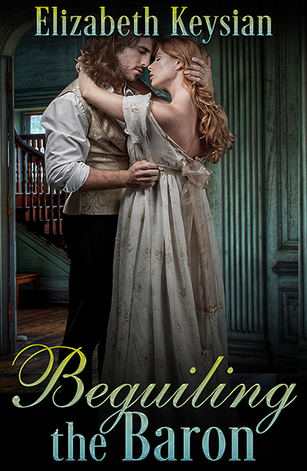
Beware reclusive barons. They are more hot-blooded than you’d expect . . .
A man who lurks day and night in an eerie tower must have something to hide. So thinks Galatea Wyndham, governess to Lord Ansford’s love-starved young daughter. Galatea’s new employer is objectionable, stubborn, great-hearted, handsome and, curse it, well worth saving from himself.
He proves her right with some shocking physical encounters, adding tinder to the blaze of her growing love for him. But just as the barriers between them are crumbling away, the tower crashes down.
With Lord Ansford inside it.

"The last thing he wanted was to love anybody.Ever again..."
However, despite Henry "Hal" Pelham, eighth Baron of Ansford's self-imposed isolation, and notwithstanding the whispered rumours that he had murdered his wife, he was honourable enough not to turn his back on his family — no matter how distant.
Nevertheless, for a man who had once spoken out against slavery, and had been steadfast in many other issues concerning the poor, the idea of opening his house up to strangers was more terrifying than facing a parliament of peers. He was no longer the man he had been. Instead, he was an empty shell with a heart so full of suffering he sometimes found it difficult to breathe.
Was this the land of plenty? Or was this just what happened to those down on their luck? Never had Galatea "Tia" Wyndham thought she would see the inside of a poorhouse, let alone be an inmate. But a misfortunate run of bad luck, a sunken ship, and a dead father, meant the debts had mounted up. With no means to pay, Tia and her mother had no choice. It was the poorhouse or death on the streets. If it were not for Lord Ansford's intervention, Tia dared not think how it would all end. But now, standing in the grounds of Foxleaze Abbey, Tia could not help but wonder if they had traded one desolate place for another.
He would not fall in love with this opinionated and stubborn young woman who had entered his life. He could not. For the ghost of Hal's late wife still haunted him.
Tia is determined to bring Hal back into the world of the living. By cutting himself off, Hal was missing so much. So very much... Hal had a young daughter who longed for her father's attention, and Tia would do anything for that little girl. What Tia must not do is fall for this wounded, and lost lord.
From the despair of Selbury Poorhouse to the crumbling remains of a dark and brooding tower, Beguiling the Baron by Elizabeth Keysian is the irresistibly alluring story of two lost souls who find hope and love in each other's arms.
Oh, this book had all the feels — a dashing, broken, wonderful hero and a courageous, plucky and romantic heroine. What more could you ask for in a Regency Romance?
Tia is a feisty heroine, who wants to help and ease suffering — whether that be in the poorhouse or at Foxleaze Abbey. Her relationship with Hal's daughter is tender and patient — her relationship with Hal is anything but. Tia is the kind of woman that feels deeply and personally, and for some reason, Hal's actions and what he says makes things very personal for her. When the two of them finally give in to their feelings, it could only be as explosive as their arguments and just as life-changing.
Through Hal, Keysian shows how easy it was to fall from grace when you were a member of the aristocracy. Although Hal's close friends refused to believe that he had any hand in his wife's death, the ton thrived on gossip, and it suited them to blacken Hal's character — not that Hal cared. Hal is in an incredibly dark place when Tia enters his life. He is paralysed by guilt, and instead of blaming his late wife for bringing the misfortune on herself, he blames himself. My heart bled for Hal, and as Tia begins to chip away at his cold exterior, the man he was begins to emerge, and he is anything but this bitter, cold man that the world now sees. Hal is passionate, kind, and really rather wonderful.
The romance between Hal and Tia is very sensual and forbidden, at least initially which, of course, made it all the more intense. Hal has been deeply hurt, and he doesn't want to love anyone ever again, he can't face that sort of pain. However, he had never countered on meeting someone like Tia, and she refuses to give up on him. It is a love story in the truest sense.
Keysian has given the same attention to detail with regards to the historical accuracy of her novel as she does to the romance. It felt like I had been transported back to Regency England. The terrible despair of the poorhouse was vivid in the telling, as was the grandeur of Foxleaze Abbey. Kudos, Ms Keysian.
Beguiling the Baron is what Regency Historical Romance is all about.
Prepare to fall in love.
I Highly Recommend.
Review by Mary Anne Yarde.The Coffee Pot Book Club.
Pick up your copy ofBeguiling the BaronAmazon UK • Amazon US
Elizabeth Keysian
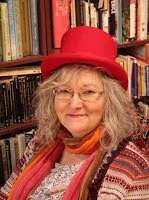 Bestselling author Elizabeth Keysian adores history and archaeology, and writes romances that give the reader an experience of travelling back in time.
Bestselling author Elizabeth Keysian adores history and archaeology, and writes romances that give the reader an experience of travelling back in time.She feels very British-despite her Viking ancestry-and loves creating rich backdrops for her stories based on real places and actual experiences. She used to be a re-enactor, so has sampled the living conditions, clothing, and smells of the past. She’s also sampled the food, which was actually pretty good.
Her characters battle their problems with both tears and laughter, but she always guarantees them a Happily Ever After, no matter what she’s put them through.
Subscribers to Elizabeth’s Key to Romance newsletter have access to exclusive content, contests and advance notice of bargains and freebie books: Newsletter Signup.
Elizabeth is a founder member of A Touch of Intrigue – a Gathering of Authors and Readers of Historical Romance. They have the best Facebook parties EVER. Please join up:HERE!
You can find Elizabeth on Facebook • Twitter • Pinterest.
Published on September 13, 2019 19:00
#BookReview — Entertaining Mr Pepys by Deborah Swift #HistoricalFiction #Stuarts @swiftstory

Entertaining Mr Pepys
By Deborah Swift

London 1666Elizabeth 'Bird' Carpenter has a wonderful singing voice, and music is her chief passion. When her father persuades her to marry horse-dealer Christopher Knepp, she suspects she is marrying beneath her station, but nothing prepares her for the reality of life with Knepp. Her father has betrayed her trust, for Knepp cares only for his horses; he is a tyrant and a bully, and will allow Bird no life of her own.When Knepp goes away, she grasps her chance and, encouraged by her maidservant Livvy, makes a secret visit to the theatre. Entranced by the music, the glitter and glamour of the surroundings, and the free and outspoken manner of the women on the stage, she falls in love with the theatre and is determined to forge a path of her own as an actress.But life in the theatre was never going to be straightforward - for a jealous rival wants to spoil her plans, and worse, Knepp forbids it, and Bird must use all her wit and intelligence to change his mind.Based on events depicted in the famous Diary of Samuel Pepys, Entertaining Mr Pepys brings London in the 17th Century to life. It includes the vibrant characters of the day such as the diarist himself and actress Nell Gwynne, and features a dazzling and gripping finale during the Great Fire of London.The third in Deborah Swift's atmospheric trilogy, bringing to life the women in Pepys' Diary. Each novel features a different character and can be read as a stand-alone book.

“Her father had lied. There was nothing in the least handsome or well-favoured about Mr Knepp…”
There was a price to unhappiness, and Mary Elizabeth (Bird) Carpenter knew its value — thirty-five guineas. Bird’s father had betrayed her in the most hideous of ways. He had married her to a man who was not only below her station but was cold, hard and callous. How was she to survive in a world with no gentle words, no careful wooing, no intelligent conversation and no music?Abandoned by her father, Bird must navigate her lonely, cruel and loveless existence. It does not take long for Bird to realise that her husband is only interested in one thing, and that is to best his business rival, Ted Viner. However, Viner is always one step ahead of him, and Christopher needs someone to take out his frustrations on.If only Christopher would show her just an ounce of the consideration that he showed his horses, then Bird may well have learned to like him. However, his sour disposition and his cruel backhand made such things very difficult.If it were not for Livvy, the young blackamoor servant, Bird would have had no one to talk to, and she would have inevitably become just a nameless face in the crowd — easily forgotten and then lost to time. Mistress and servant form an unlikely, but unbreakable friendship and one spontaneous trip to the theatre changes the course of both their lives forever…Based on historical figures and events, Entertaining Mr Pepys by Deborah Swift is the unforgettable story of one woman’s courage to not only chase her dreams but to embrace them and make them her own.Entertaining Mr Pepys is a monumental work of scholarship. The historical detailing in this book has to be commended. Swift has certainly done her research, but more than that, she has an intuitive understanding of what makes history worth reading and also an eye for the entertaining. Swift’s fast-paced narrative and vivacious storytelling make this book next to impossible to put down. It is in all ways, a historical fiction triumph.Swift has used for reference the fascinating diary entries written by Samuel Pepys. Within these diaries is not only a first-hand account about the Restoration, the Second Anglo-Dutch War, the Great Plague and the Great Fire of London, but also the tantalising glimpse of the life of some very notable women during this era, and Pepys seemed particularly fascinated by a young English actress, Elizabeth Knepp. Using these diaries, Swift has written a book that not only honours Elizabeth but one that is absolutely irresistible. I adored the characterisation of Bird. She is everything that a heroine should be, but she is also very human in the telling, which certainly helped me to make that all-important emotional connection. Kudos, Ms Swift.Swift paints a dazzling portrait of a hard-up, hard-working community who dared to pick themselves up and carry on in the face of unimaginable horrors. This was the time of plague, wars and fire. Swift has captured not only the sense of time but also the spirit of the people who lived, worked, loved and died during this era of tremendous uncertainty and change. The contrast between those who had and those who did not was also cleverly woven into the fabric of this story. And yet, there is also a moral lesson, whether that was intentional or not, that reminded me of the adage, all that glitters is not gold.Swift does not shy away from the realities of what it was to be a woman in the Stuart era. This is not a book that places modern values into a bygone time. There are some things that happen to Bird that we would see as totally unacceptable, but back then a woman was expected to be submissive to her husband, and if she disobeyed him it was socially acceptable to beat her. At times this made for some very difficult reading, but I can understand why Swift chose to stay true to the period, and I applaud her for standing her ground and not making her characters values and opinions modern in the telling. By not doing so, Swift has given this book authenticity. In the early 1660s, after the Restoration of King Charles II, women were permitted to perform on the English stage for the first time. Swift has captured the excitement but also the uncertainty for although women could now perform it meant that the boys, who once played the female leads, were now redundant. Young Stefan, although bitter and at times very spiteful, surprisingly stole my heart. His life is the theatre and while Bird steps into the light, Stefan has to be content with returning to the shadows. On top of this, Stefan struggles with his sexuality, which I thought Swift portrayed with great care and sensitivity. I thought this sub-plot was utterly irresistible.As stated, this book is based on actual historical people, and when I think of the theatre during the Stuart period, I think of Nell Gwynne. In Entertaining Mr Pepys, we witness the beginning of Nell’s career. This was a career that would take her all the way to the King’s bed. Nell has a very minor role in this book, but she is there, as is a host of other celebrated actress and actors.There is so much to love about this book. I enjoyed every syllable and every sentence. Superbly portrayed and shamelessly compelling, Entertaining Mr Pepys by Deborah Swift is a book that will not only keep you up at night, but it is one that you will come back to again and again.I Highly Recommend.Review by Mary Anne Yarde.The Coffee Pot Book Club.
Pick up your copy of
Entertaining Mr Pepys
Amazon
Deborah Swift
 Deborah Swift is the author of three previous historical novels for adults, The Lady’s Slipper, The Gilded Lily, and A Divided Inheritance, all published by Macmillan/St Martin’s Press, as well as the Highway Trilogy for teens (and anyone young at heart!). Her first novel was shortlisted for the Impress prize for new novelists.
Deborah Swift is the author of three previous historical novels for adults, The Lady’s Slipper, The Gilded Lily, and A Divided Inheritance, all published by Macmillan/St Martin’s Press, as well as the Highway Trilogy for teens (and anyone young at heart!). Her first novel was shortlisted for the Impress prize for new novelists.She lives on the edge of the beautiful and literary English Lake District – a place made famous by the poets Wordsworth and Coleridge.
Connect with Deborah: Website •Facebook• Twitter• Goodreads.
Published on September 13, 2019 18:00
The Coffee Pot Book Club
The Coffee Pot Book Club (formally Myths, Legends, Books, and Coffee Pots) was founded in 2015. Our goal was to create a platform that would help Historical Fiction, Historical Romance and Historical
The Coffee Pot Book Club (formally Myths, Legends, Books, and Coffee Pots) was founded in 2015. Our goal was to create a platform that would help Historical Fiction, Historical Romance and Historical Fantasy authors promote their books and find that sometimes elusive audience. The Coffee Pot Book Club soon became the place for readers to meet new authors (both traditionally published and independently) and discover their fabulous books.
...more
...more
- Mary Anne Yarde's profile
- 159 followers



